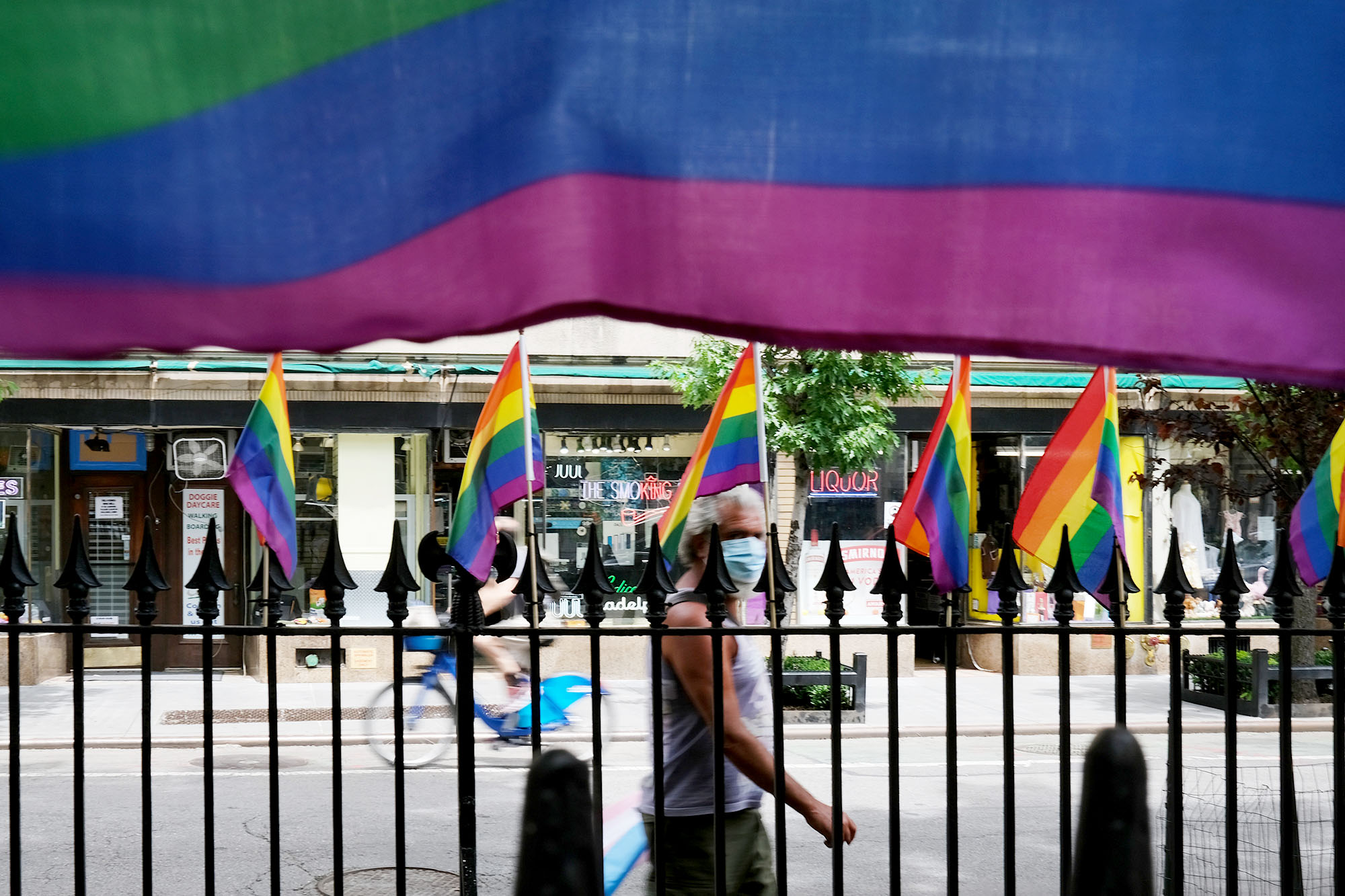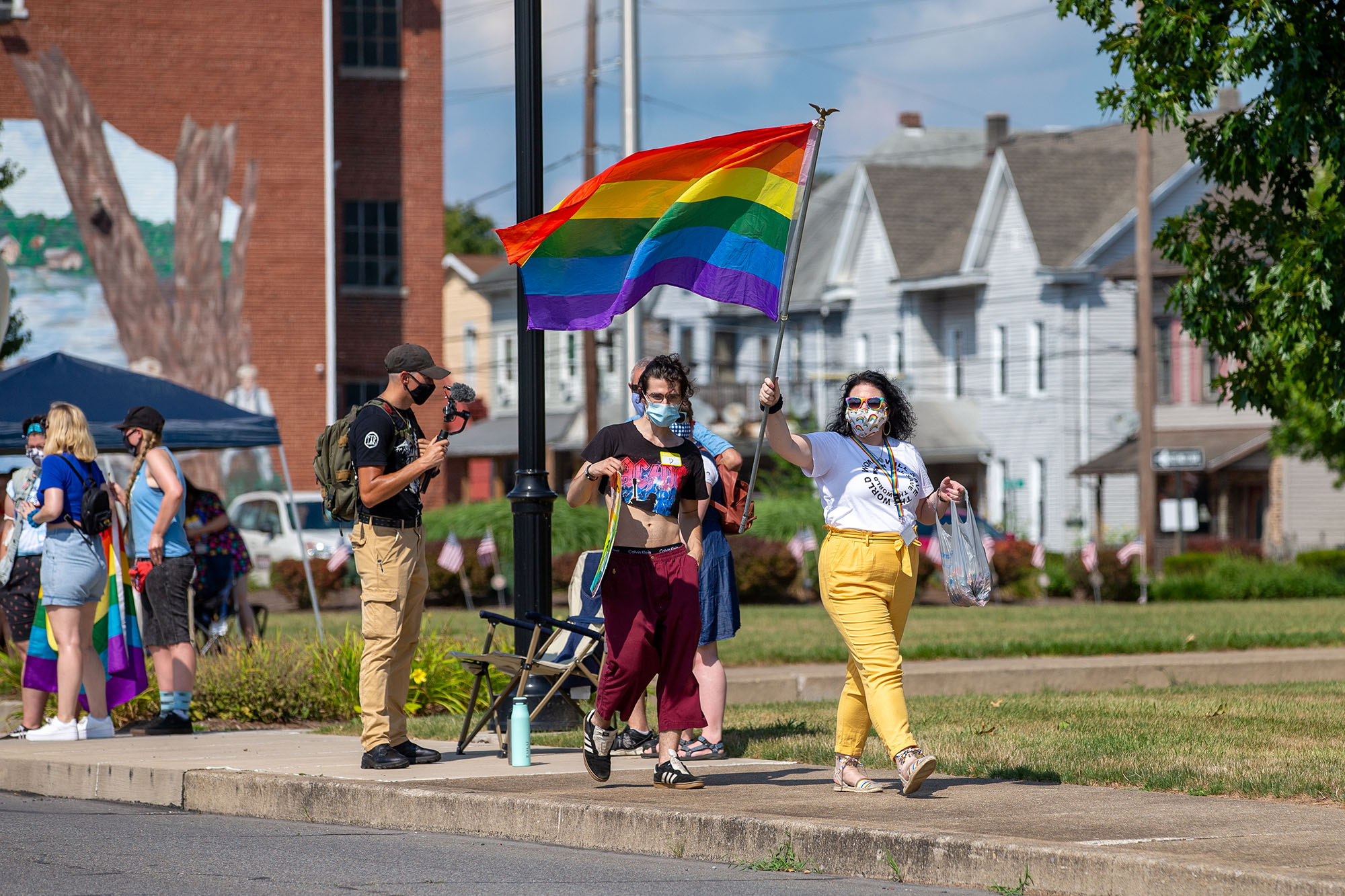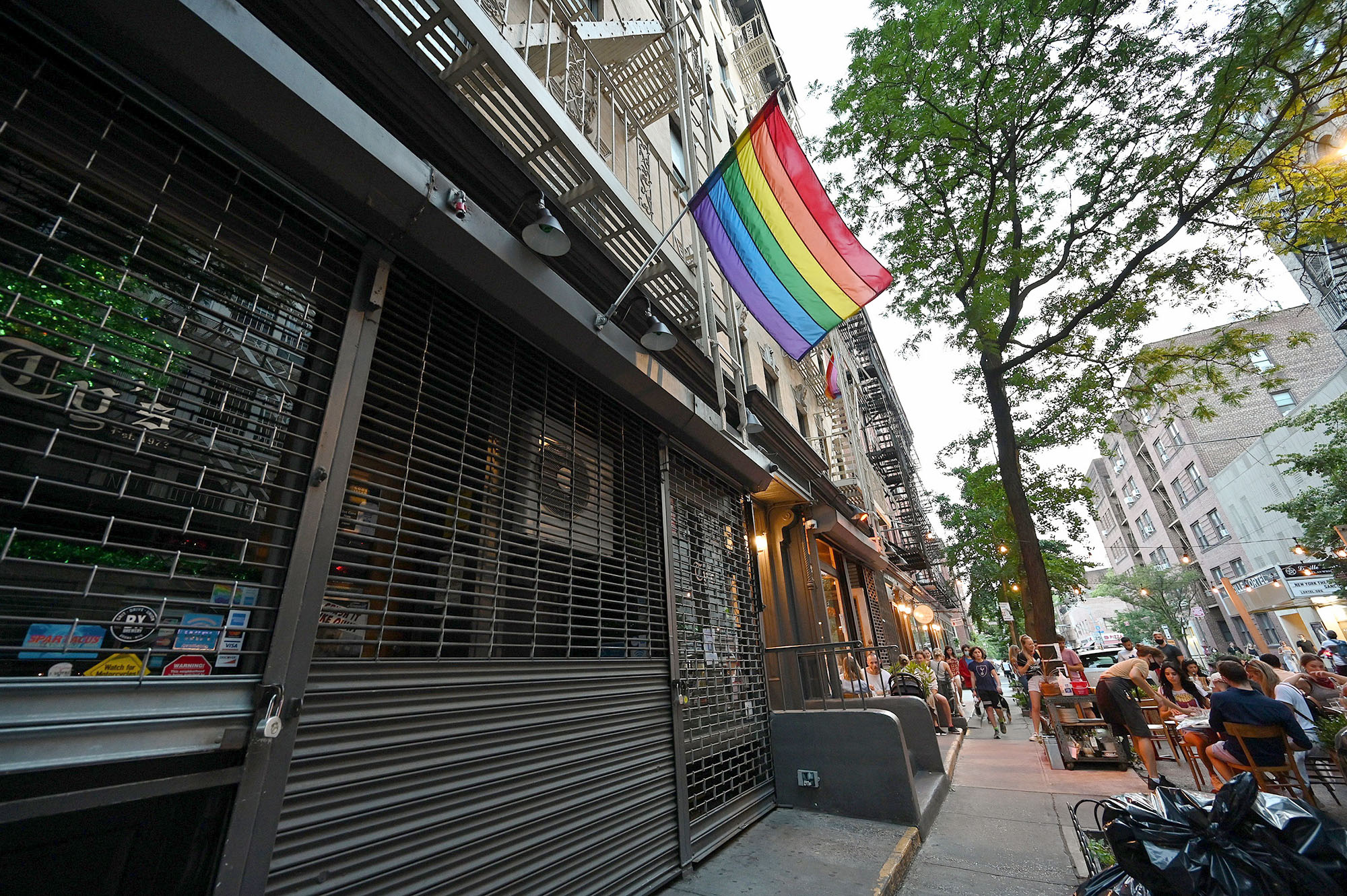LGBTQ community sees severe impact from COVID-19 pandemic, study finds
One researcher said she hopes this data "inoculates us against indifference."
The unrelenting COVID-19 crisis has pushed Americans already on the financial brink to face impossible choices, and already vulnerable groups with the slimmest safety nets are suffering much of the fallout.
Even pre-pandemic, the challenges endured by marginalized populations were daunting. And though no amount of data will ever fully grasp the full human toll from this past year, a new report underscores how the underlying difficulties experienced by the LGBTQ community are exacerbated by the virus.
Interviews with more than 3,400 adults in the United States, conducted in both English and Spanish through the summer surge in July and August, revealed the sharp impact felt by the LGBTQ community as a result of COVID-19. Economic upheaval, high unemployment rates and steep obstacles to accessing health care all loomed large, the report from the Movement Advancement Project (MAP), a gender equality-focused nonprofit think tank, found.

Researchers analyzed data from the Robert Wood Johnson Foundation, Harvard's T.H. Chan School of Public Health and NPR for the report, and that data has raised concerns that a group already at risk will sustain long-lasting damage that is difficult to heal.
“COVID has revealed and exacerbated disparities that existed way before the pandemic started,” Logan Casey, co-author of the report and policy researcher at MAP, said.
The virus has hurt communities across the nation and around the globe. The holiday season brought a new sobering milestone: With just days left until the new year, December is set to become the worst month on record in terms of COVID-19 cases in the U.S.
“We know LGBTQ households and the community more broadly experience higher rates of discrimination in the workplace, steep obstacles to housing, accessing medical care -- and to the extent that LGBTQ people and LGBTQ people of color are experiencing the full force of this pandemic, it’s likely their recovery will take even longer,” Casey said. “So, even the vaccine coming won’t stop the long-lasting economic, social and physical impact of the virus on the most vulnerable.”
In 2020, at least 41 transgender or gender-nonconforming people have been fatally shot or killed by other violent means, the majority of which were Black and Latina transgender women, according to the Human Rights Campaign (HRC). Since the organization began tracking this data in 2013, advocates have “never seen such a high number at this point in the year,” the HRC said.
Now, a community already targeted by hate speech, violence and discrimination find themselves fending off further threat amid the pandemic.

Nearly two-thirds of LGBTQ households have lost a job since the pandemic began, compared with just under half of non-LGBTQ households, the report found. Two-thirds of LGBTQ households had at least one serious financial problem -- that number jumping to 95% for Black LGBTQ people and 70% of Latino LGBTQ people, according to the report.
One in five households reported they were not getting enough food to eat every day. Nearly four in 10 LGBTQ households had been unable to get needed medical care or delayed getting medical care for a serious issue, compared to about two in 10 non-LGBTQ households. LGBTQ households lost health coverage at double the rate of non-LGBTQ households, according to the report.
With health care discrimination already an obstacle for many LGBTQ Americans, the pandemic threatens to compound these barriers further, which experts fear may make it even harder to get treatment.
“And if your health care is tied to the job you lost, then you've already lost whatever health care access or protection you may have had and the means to afford needed care. And so it's like, so many entry points to this trauma,” Casey said.
With slimmer financial margins, the pandemic’s stressors multiplied. Lower-income LGBTQ households reported higher rates of serious financial problems, job loss or disruption and serious problems with internet connection, compared to higher-income LGBTQ households.
And with pervasive social isolation a main byproduct of the pandemic, those within the LGBTQ community suffered greater in the loss of social networks, the report found. Approximately 44% of LGBTQ households reported serious problems coping with social and physical isolation during the pandemic, compared to 23% of non-LGBTQ households.
“The pandemic is really holding up the mirror to our society, and whatever was wrong with it before has just been amplified,” Bri Barnett, director of development at Trans Lifeline, a crisis phone line providing peer support, told ABC News.
Crisis calls to the hotline have spiked during the pandemic. Barnett noted that there has been a 40% increase of their most severe types of calls, when a caller is actively considering self-harm.
“We notice that people are talking a lot about social isolation when they call,” Barnett said. “And concerns about being unemployed or underemployed, and then a lot more talk about being in abuse domestic family or intimate partner situations. It’s been a really intense time for the community, and the holidays become an even more stressful time.”

“The isolation during this pandemic can be very toxic in terms of emotional and physical wellbeing,” Naomi Goldberg, report co-author and policy research director at MAP, said. “You think about the places people seek connection, a lot of that has disappeared. So life has moved online -- and yet we know the internet has also been an issue.”
“Think about this," Casey said. "This poll was conducted in July of this year. And so now here we are in December, many months later, and numbers are continuing to surge and setting new records. It’s likely going to make these painful ripple effects even worse.”
“This report clearly spells out how the COVID-19 pandemic has worsened the devastating consequences of discrimination, particularly for LGBTQ people and queer people of color,” Barbara Simon, the head of news and campaigns at GLAAD, said in a statement to ABC News. “The suffering our community has endured is heartbreaking, and this new research shows it is directly related to the inequality and challenges LGBTQ people already face.”
Experts hope the data helps raise awareness about the deep and prevailing inequities still plaguing marginalized groups.
“I’m hoping data like this sort of inoculates us against indifference,” Goldberg said. “And help propel us forward, that like, 'OK, we have to do something now.'”
ABC News' Eric M. Strauss contributed to this report.




